
Intraoperative bile spillage might serve as a prognostic tool for gall bladder cancer.

Your AI-Trained Oncology Knowledge Connection!


Intraoperative bile spillage might serve as a prognostic tool for gall bladder cancer.

Diagnosis of endometrial carcinoma made easier by analysis of mutations in cervix or endometrial tissue.

After the FDA restricted the labels of 2 drugs used to treat bladder cancer, oncologists' use of these treatments decreased drastically.
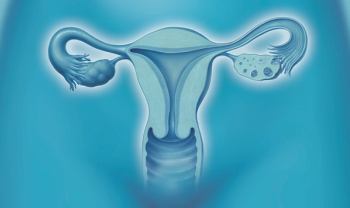
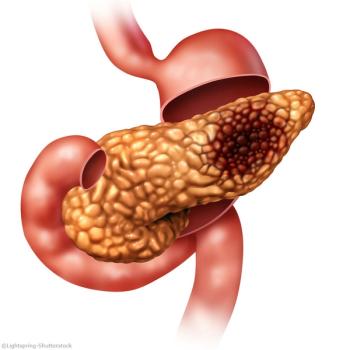
Researchers believe that previous findings about coffee consumption’s possible link to an increased risk of pancreatic cancer come from confounding factors that were not accounted for, such as smoking.

Although rare, is breast cancer in males genetic? Researchers provide details.

The Global Burden of Disease 2017 study found non-melanoma skin cancer to be the biggest increase in incidence worldwide.

The combination use of Darzalex with bortezomib, thalidomide, and dexamethasone was approved for transplant-eligible patients with multiple myeloma.

Some patients are more likely to find out about their cancer via a visit to the emergency department than others.

As more younger adults are diagnosed with colorectal cancer, the FDA approved Cologuard, a stool-based, at-home colorectal cancer screening, for adults aged 45 to 49 years.
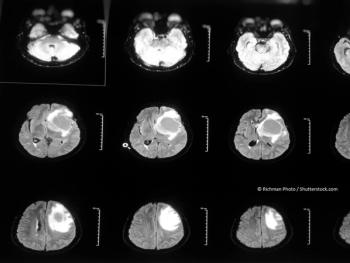
Investigators assessed effects of TIB on cell number, migration, invasion, estrogen, and progesterone receptor activity and content.

Administration of antibiotics prior to immune checkpoint inhibitor therapy may reduce response to treatment and worsen survival outcomes in patients with cancer.
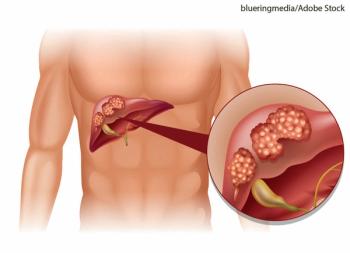
Researchers recently reported on the association between upregulation of EPS8L3 and liver cancer prognosis.

Researchers examined whether cancer or treatment type impacted the symptom burden of survivors of cancer.
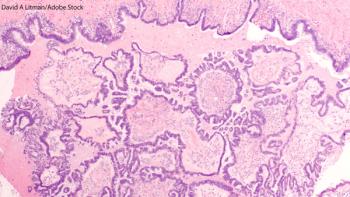
The AVANOVA2 trial enrolled a total of 97 patients with high-grade serous or endometrioid platinum-sensitive recurrent ovarian cancer.

Many clinical trials in breast and endometrial cancers are underway and recruiting patients.
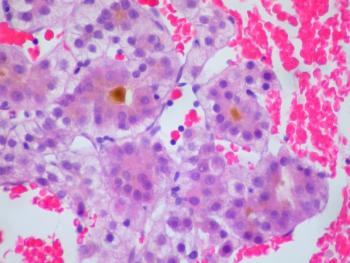
Therapy options for patients with hepatocellular carcinoma (HCC), including a newly approved therapy for a subpopulation of patient.

The first-of-its-kind collaboration led to the approval of a combination therapy for patients with endometrial cancer.

Whether a cancer survivor had a health savings account (HSA) as part of their high-deductible health plan was linked to access to care.

Apalutamide was initially approved in 2018 for patients with non-metastatic castration-resistant prostate cancer; the recent approval is for patients with metastatic castration-sensitive prostate cancer.

There's been much research done on how cancer of the reproductive organs affects patients' sexuality; this new study included patients with cancers outside the reproductive organs.

A new study presented at the International Association for the Study of Lung Cancer's 2019 conference may have found a model for lung cancer screening which improves on lung cancer screening guidelines from the U.S. Preventive Services Task Force.

The combination was simultaneously approved in Australia and Canada and was the first such action under a new international collaboration.

A new study looked at median overall survival for patients with prior antibiotic therapy compared with patients with no prior antibiotic therapy.

Age disparities in oncology trials are continuing, despite opposition to this issue.

Two doctors discuss their research on how use of alternative over traditional medicine affects survival rates in patients with cancer and how oncologists can approach the age of medical misinformation.
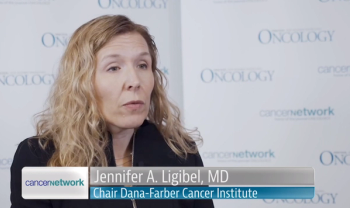
Cancer Network spoke with Dr. Jennifer A. Ligibel on the diet and exercise interventions to reduce breast cancer recurrences.

Underinsured patients use websites like GoFundMe to pay medical bills after being diagnosed with cancer, but many fundraising campaigns are unsuccessful.

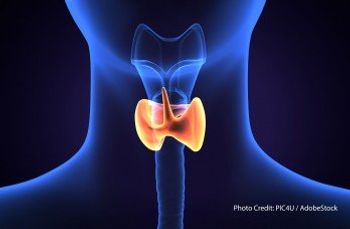
A new orally active inverse agonist of estrogen-related receptor gamma (ERRү) called DN200434 shows promise with regard to the diagnosis and treatment of anaplastic thyroid cancer.